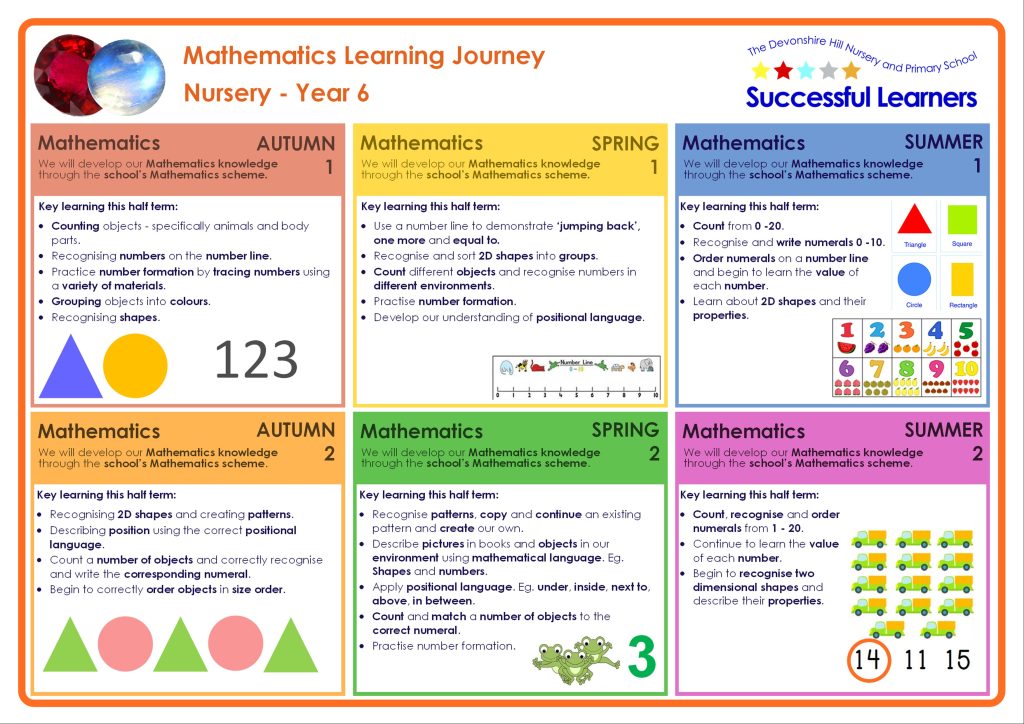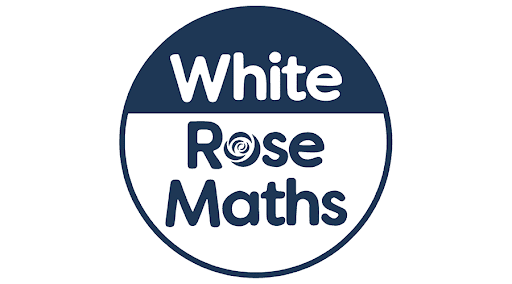Mathematics Learning Journey
Click on the image below to view our Mathematics Learning Journey:

Our intent
A high-quality mathematics education provides a foundation for understanding the world, the ability to reason mathematically, an appreciation of the beauty and power of mathematics, and a sense of enjoyment and curiosity about the subject. We want every child in our school to develop a sound understanding of mathematics, equipping them with the skills of calculation, reasoning and problem solving that they may need in life beyond school.
The implementation
We follow the National Curriculum for mathematics and all classes have timetabled maths lessons every day focusing on both mental and written mathematics.
It is our belief that mathematics ability is not innate, but rather, increased through effort and hard work, therefore along with the National Curriculum, from Reception to our current Year 6 we deliver the White Rose programme. With this approach, mathematics is planned and sequenced which ensures careful cumulative coverage. The focus is always on a progression from concrete resources to pictorial representation and into the numerical abstract, which supports the development of deep conceptual understanding.
In each lesson, our children work on practising core skills, applying them to real life contexts and developing essential skills of reasoning. Teaching for mastery does not mean we do not differentiate, but we do aim high for all.
Our lesson structure in White Rose allows for ‘deliberate practice’ of the small steps of learning so that pupils may advance to more complex learning by the end of the lesson. Learning is ‘chunked’ into a ‘Do Now’, New Learning, and a Talk Task. Our children are constantly challenged to explain why, to prove how they know, to convince that they are correct, or to find all possible outcomes. They have the opportunity to use a wide range of resources to support their learning such as hundred squares, number lines, Numicon, dienes blocks, cubes, place value cards and other small apparatus.
Children revisit and revise concepts in our daily maths meetings as well as practise mathematical fluency and arithmetic each week.
Multiplication (times tables) are taught in Years 2-4 with the expectation that all pupils know their times tables by the end of Year 4. Across the school, children use the ‘J2blast’ App which contains a carefully sequenced programme of daily times tables practice.
The use of Information Technology enhances and supports the teaching of mathematics at Devonshire Hill. We use web-based learning programmes that integrate home and school learning via the internet. Each child has a username and password which allows access the programmes both at school and at home at https://my.uso.im/j2e/ and use their Google Log ins.
The use of Information Technology enhances and supports the teaching of mathematics at Devonshire Hill. We use web-based learning programmes that integrate home and school learning via the internet.
Impact
We believe that every child should have a secure understanding of each mathematical concept before progressing to other areas of mathematics. Teachers use assessment for learning strategies as well as engaging in conferencing activities to identify and to address any misconceptions immediately. Each half term children from Reception to Year 5 are assessed through a written end of unit test. They also use consolidation weeks to address any area of mathematics that needs more practice.

